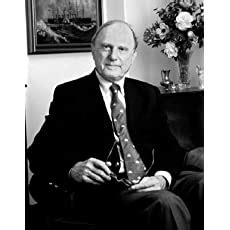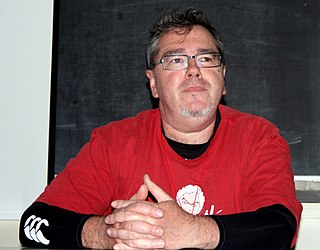A Quote by T. S. Eliot
Poetry may make us from time to time a little more aware of the deeper, unnamed feelings which form the substratum of our being, to which we rarely penetrate; for our lives are mostly a constant evasion of ourselves.
Related Quotes
The quality of light by which we scrutinize our lives has direct bearing upon the product which we live, and upon the changes which we hope to bring about through those lives. It is within this light that we form those ideas by which we pursue our magic and make it realized. This is poetry as illumination, for it is through poetry that we give name to those ideas which are, until the poem, nameless and formless-about to be birthed, but already felt.
The mystery of the spiritual life is that Jesus desires to meet us in the seclusion of our own heart, to make his love known to us there, to free us from our fears, and to make our own deepest self known to us Each time you let the love of God penetrate deeper into your heart it leads to a love of ourselves that enables us to give whole-hearted love to our fellow human beings. In the seclusion of our hearts we learn to know the hidden presence of God; and with that spiritual knowledge we can lead a loving life.
We find nothing easier than being wise, patient, superior. We drip with the oil of forbearance and sympathy, we are absurdly just, we forgive everything. For that very reason we ought to discipline ourselves a little; for that very reason we ought to cultivate a little emotion, a little emotional vice, from time to time. It may be hard for us; and among ourselves we may perhaps laugh at the appearance we thus present. But what of that! We no longer have any other mode of self-overcoming available to us: this is our asceticism, our penance.
The Greeks had two words for time. Chronos is the time we usually keep an eye on. Kairos was our participation of time. Time that moves us so that we lose our sense of time; timeless time; moments at which the clocks seems to stop; feeding, renewing, more motherly time. It's the time with which we feel one instead of outside of it, the self, the tao, the love that connects us to others.
I don't think poetry needs to be "easily understandable." First of all, there are often complexities of syntax, form, unfamiliar absences, etc., that require a deeper concentration than is usually demanded of us. So that, right off the bat, is a little difficult. Then there is the deeper issue of what poetry is really asking of us. I feel it is asking us to read with great, even sacred, care and attention. That, too, is difficult. It requires discipline and the creation of a temporary zone of privacy, which is inimical to our current conditions of life.
What is life? Thoughts and feelings arise, with or without our will, and we employ words to express them. We are born, and our birth is unremembered and our infancy remembered but in fragments. We live on, and in living we lose the apprehension of life. How vain is it to think that words can penetrate the mystery of our being. Rightly used they may make evident our ignorance of ourselves, and this is much.
Why are we reading if not in hope that the writer will magnify and dramatize our days, will illuminate and inspire us with wisdom, courage, and the possibility of meaningfulness, and will press upon our minds the deepest mysteries, so that we may feel again their majesty and power? What do we ever know that is higher than that power which, from time to time, seizes our lives, and reveals us startlingly to ourselves as creatures set down here bewildered?
Most people can look back over the years and identify a time and place at which their lives changed significantly. Whether by accident or design, these are the moments when, because of a readiness within us and a collaboration with events occurring around us, we are forced to seriously reappraise ourselves and the conditions under which we live and to make certain choices that will affect the rest of our lives.
When we are in love, our love is too big a thing for us to be able altogether to contain it within ourselves. It radiates towards the loved one, finds there a surface which arrests it, forcing it to return to its starting-point, and it is this repercussion of our own feeling which we call the other's feelings and which charms us more then than on its outward journey because we do not recognise it as having originated in ourselves.
The Louvre is the book in which we learn to read. We must not, however, be satisfied with retaining the beautiful formulas of our illustrious predecessors. Let us go forth to study beautiful nature, let us try to free our mids from them, let us strive to express ourselves according to our personal temperaments. Time and reflection, moreover, little by little modify our vision, and at last comprehension comes to us.
Once we begin to feel deeply all the aspects of our lives, we begin to demand from ourselves and from our life-pursuits that they feel in accordance with that joy which we know ourselves to be capable of. Our erotic knowledge empowers us, becomes a lens through which we scrutinize all aspects of our existence, forcing us to evaluate those aspects honestly in terms of their relative meaning within our lives. . . .





































